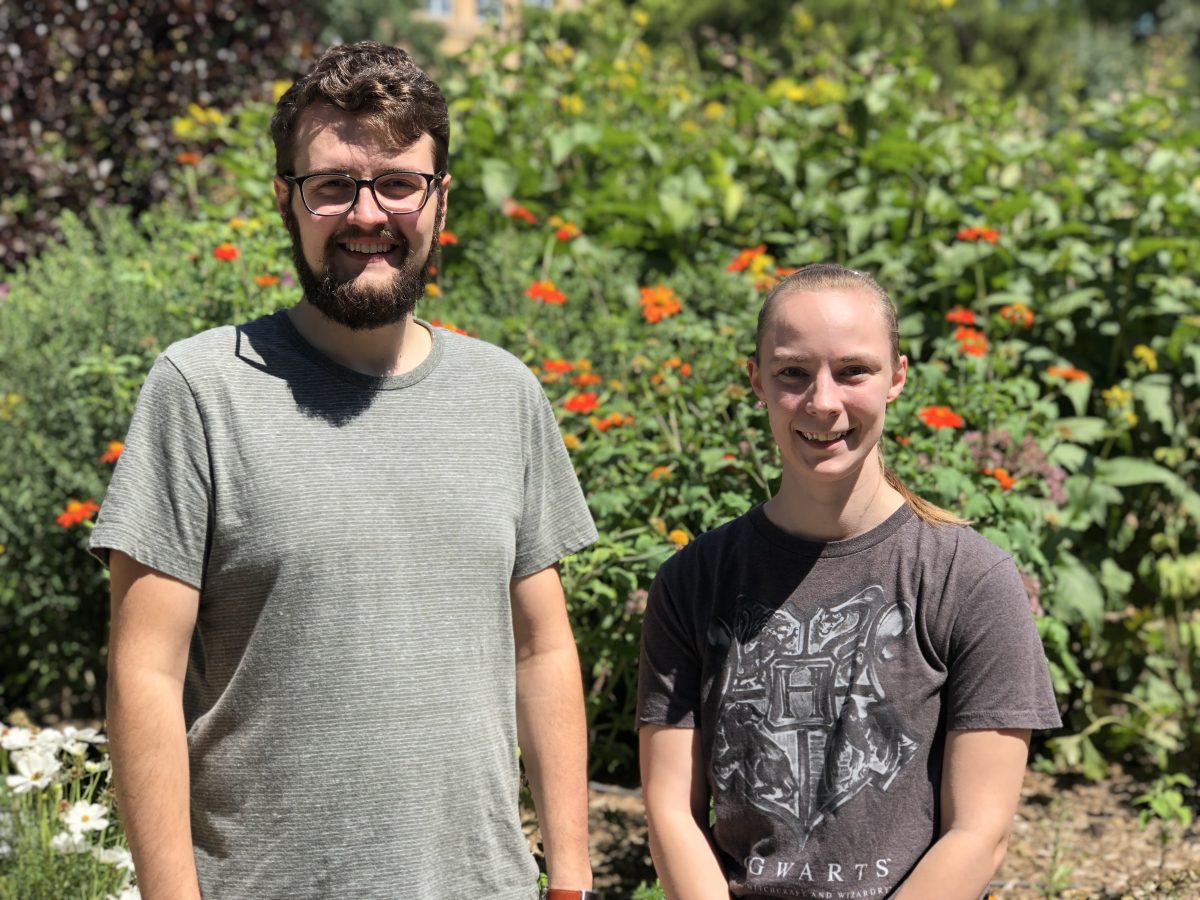
Congratulations to two WQI graduate students on earning National Defense Science and Engineering graduate fellowships!
Aedan Gardill, pictured left, and Megan Tabbutt, both second-year students in the Kolkowitz group, will receive up to three years of funding to pursue their research projects. Below, Tabbutt and Gardill summarize their research projects.
Megan Tabbutt
Optical atomic clocks are now the most precise time keepers in the world, keeping time to better than one second over the age of the universe. With support from the NDSEG, I will work with my collaborators to build a new “multiplexed” strontium optical lattice atomic clock, which will consist of two clocks in one vacuum vessel. We will use this new kind of clock to perform tests of Einstein’s theory of relativity, such as measuring the relativistic effects of gravity on the passage of time at the millimeter scale, which may one day have applications ranging from the prediction of volcanic eruptions to water resource management and flood prevention. We will also engineer strong interactions between the atoms that make up the clock to generate entangled states for quantum enhanced clock performance, among other pursuits.
Aedan Gardill
Superconducting qubits are a promising system for quantum computing, but external sources of “noise” currently limit their usefulness. A better understanding of the sources of this noise in the qubits should help advance quantum computing efforts. With the NDSEG fellowship, my research will focus on using nitrogen vacancy centers in diamond as sensors with nanometer-scale resolution. We will develop and apply novel sensing techniques to study interesting solid state systems, such as investigating the origins of noise that currently limit superconducting qubit performance.